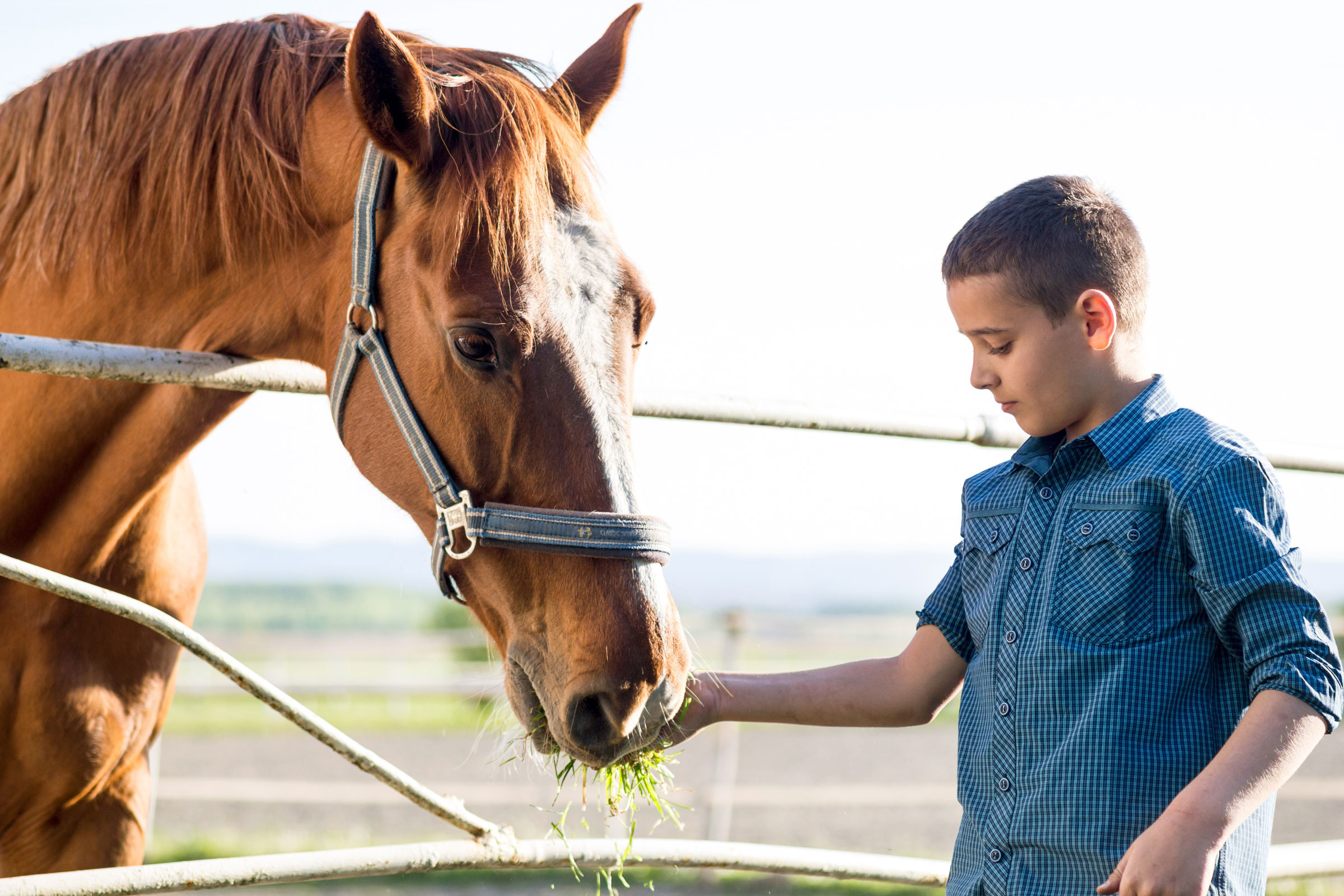
The horse has evolved as a grazing animal, therefore forage plays a pivotal role in equine health. Horses are non-ruminant herbivores also known as a “hindgut fermenters.” Their digestive tracts are made up of a simple stomach, small intestine and large intestine. The natural feeding habit of the horse is to eat small amounts of roughages often. Domestication has brought a change to this. Modern management practices of horses incorporate stabling, increased grain-based concentrate consumption, meal feeding and limited access to pasture. This has led to a myriad of problems by undermining the horse’s digestive capabilities.
To ensure optimal health, horses must be given access to a high-quality fiber-based diet.
Forage contains all of the essential nutrients required by horses: water, energy, protein, vitamins and minerals. Grain concentrates and supplements should only be fed to compliment the forage being offered. If high-quality forage is being fed, most horses only require a low intake vitamin and mineral pellet (ration balancer pellet). As horses increase their workload or physiological demands, e.g. pregnancy or lactation, additional concentrate might be required. Horses require an absolute minimum of 1% of their body weight per day in dry forage. For a 1,000-pound horse, this equates to 10 pounds per day. A safer guideline is to provide horses with a minimum of 1.5% to 2% of their body weight per day in dry forage (15 to 20 pounds of dry forage per day for a 1,000-pound horse).
Standlee Premium Western Forage Products
Feeding Standlee Premium Western Forage products (bagged forage and hay) will boost the quality, consistency and nutrient profile of marginal-quality forage. This will help horses satisfy their nutrient requirements and decrease the amount of grain that must be fed.
Standlee Premium Western Forage provides premium, high-quality hay that can be fed to all classes of horses. This hay is grown in the Western United States and it is without equal with respect to quality and nutrient profile.
There are several options available when adding Standlee Premium Western Forage to your horse’s diet. The bagged forage products can be used to improve the nutritional value of lesser-quality hay. They should be included on a pound-for-pound basis. For example, if you are already feeding 1.5% to 2% of your horse’s body weight in lesser-quality hay, you can improve the quality of the forage by replacing a portion of the hay with a better-quality forage such as Standlee Premium Western Forage cubes or pellets. Benefits to bagged forage products include guaranteed consistency in quality and nutritional profile, along with less waste and easier storage and handling than larger bales of hay. Standlee Premium Western Forage also provides premium, high-quality baled hay in a variety of sizes. Check out some great Standlee Premium Western Forage products options to keep your horse supplied with a balanced diet at standleeforage.com.
This article was written by Drs. Tania Cubitt and Stephen Duren.


